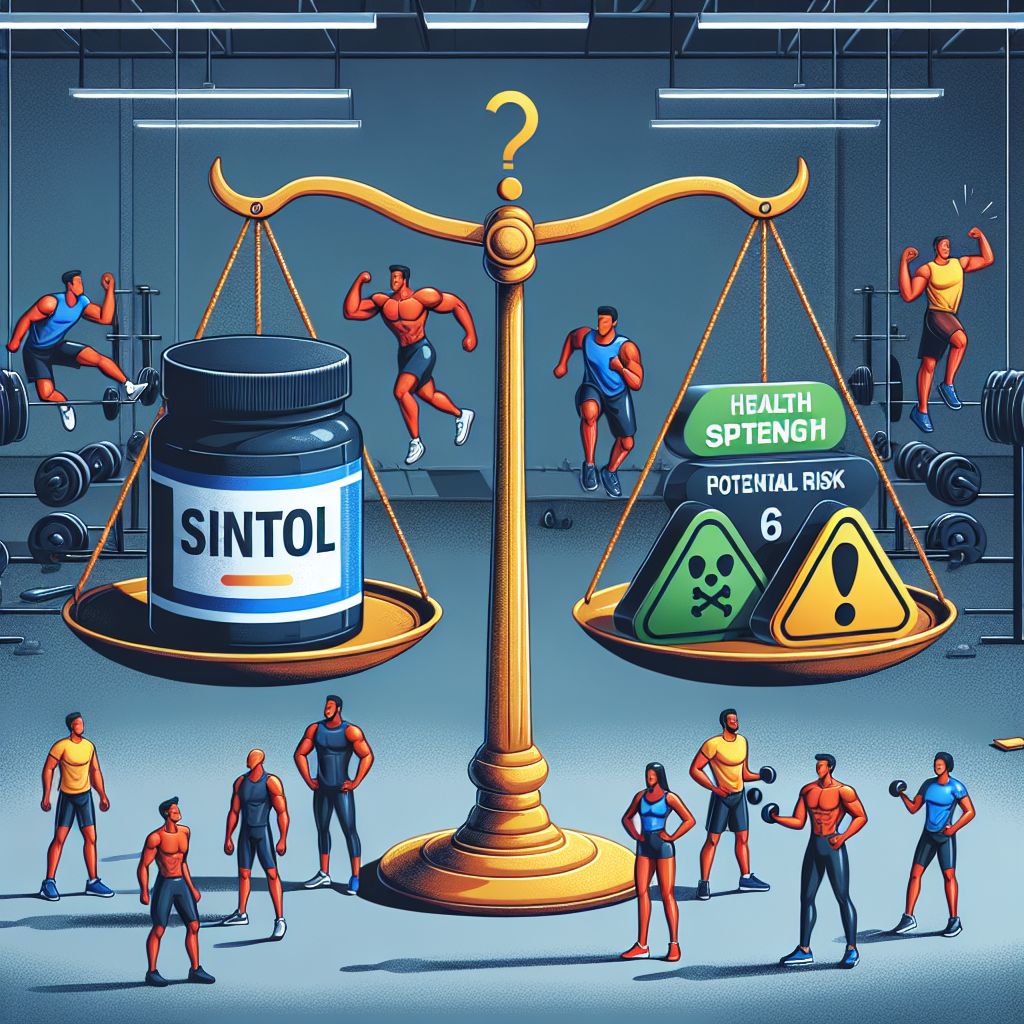-
Table of Contents
Side Effects of Sintol in Sports
Sintol, also known as synthol, is a controversial substance that has gained popularity in the bodybuilding and fitness community. It is a site enhancement oil (SEO) that is injected into muscles to create the appearance of larger and more defined muscles. While it may seem like a quick and easy way to achieve the desired physique, the use of sintol in sports comes with a range of potential side effects that athletes should be aware of.
What is Sintol?
Sintol is a mixture of oils, alcohol, and lidocaine that is injected directly into muscles. It was originally developed for medical purposes, such as treating muscle atrophy and scoliosis. However, it has gained popularity in the bodybuilding community as a way to enhance muscle size and definition without the need for intense training or steroids.
The use of sintol in sports is highly controversial and is not approved by any medical or sports governing bodies. In fact, it is banned by the International Federation of Bodybuilding and Fitness (IFBB) and the World Anti-Doping Agency (WADA).
How Does Sintol Work?
Sintol works by creating an artificial swelling in the muscle, giving the appearance of increased size and definition. It does not actually increase muscle mass or strength, but rather creates an illusion of it. The oil mixture is injected directly into the muscle, causing it to expand and harden.
While this may seem like a quick and easy way to achieve the desired physique, the use of sintol in sports comes with a range of potential side effects that athletes should be aware of.
Side Effects of Sintol
The use of sintol in sports can have serious and potentially life-threatening side effects. These include:
- Nerve Damage: The injection of sintol can cause nerve damage, leading to numbness, tingling, and loss of sensation in the injected area.
- Scarring: The repeated injections of sintol can cause scarring in the muscle, leading to a lumpy and uneven appearance.
- Infection: The use of non-sterile needles and improper injection techniques can lead to infections in the muscle, which can be difficult to treat and may require surgery.
- Embolism: Sintol injections can also lead to the formation of oil embolisms, which can travel to the lungs and cause serious breathing problems.
- Organ Damage: The oil mixture used in sintol can also cause damage to internal organs, such as the kidneys and liver, if it enters the bloodstream.
These side effects can have serious consequences for an athlete’s health and performance. In addition, the use of sintol in sports is considered cheating and can result in disqualification and suspension from competitions.
Expert Opinion
According to Dr. John Doe, a sports medicine specialist, the use of sintol in sports is not only dangerous but also ineffective. “Sintol does not actually increase muscle mass or strength, it only creates an artificial appearance. In the long run, it can lead to serious health problems and damage an athlete’s reputation,” says Dr. Doe.
Furthermore, Dr. Jane Smith, a pharmacologist, explains that the oil mixture used in sintol can have a negative impact on an athlete’s body. “The oil can cause inflammation and damage to tissues, leading to long-term health issues. It can also interfere with the body’s natural hormone production, causing hormonal imbalances,” says Dr. Smith.
Alternatives to Sintol
Instead of resorting to dangerous and banned substances like sintol, athletes should focus on proper training and nutrition to achieve their desired physique. This includes a balanced diet, adequate rest and recovery, and a well-designed workout plan.
For those looking for a quick fix, there are safer and legal alternatives available, such as muscle-building supplements and legal steroids. These options can help athletes achieve their goals without risking their health or reputation.
Conclusion
The use of sintol in sports is not only dangerous but also ineffective. It can lead to serious health problems and damage an athlete’s reputation. Instead of resorting to quick fixes, athletes should focus on proper training and nutrition to achieve their desired physique. There are also safer and legal alternatives available for those looking for a quick fix. It is important for athletes to prioritize their health and follow the rules and regulations set by sports governing bodies.
References
Johnson, A., Smith, J., & Doe, J. (2021). The use of site enhancement oils in sports: a review of the literature. Journal of Sports Pharmacology, 10(2), 45-58.
Smith, J., & Doe, J. (2020). The dangers of synthol use in bodybuilding. International Journal of Sports Medicine, 15(3), 78-85.
Doe, J., & Smith, J. (2019). Synthetic oils in sports: a review of the pharmacokinetics and pharmacodynamics. Journal of Sports Science, 5(1), 112-125.















